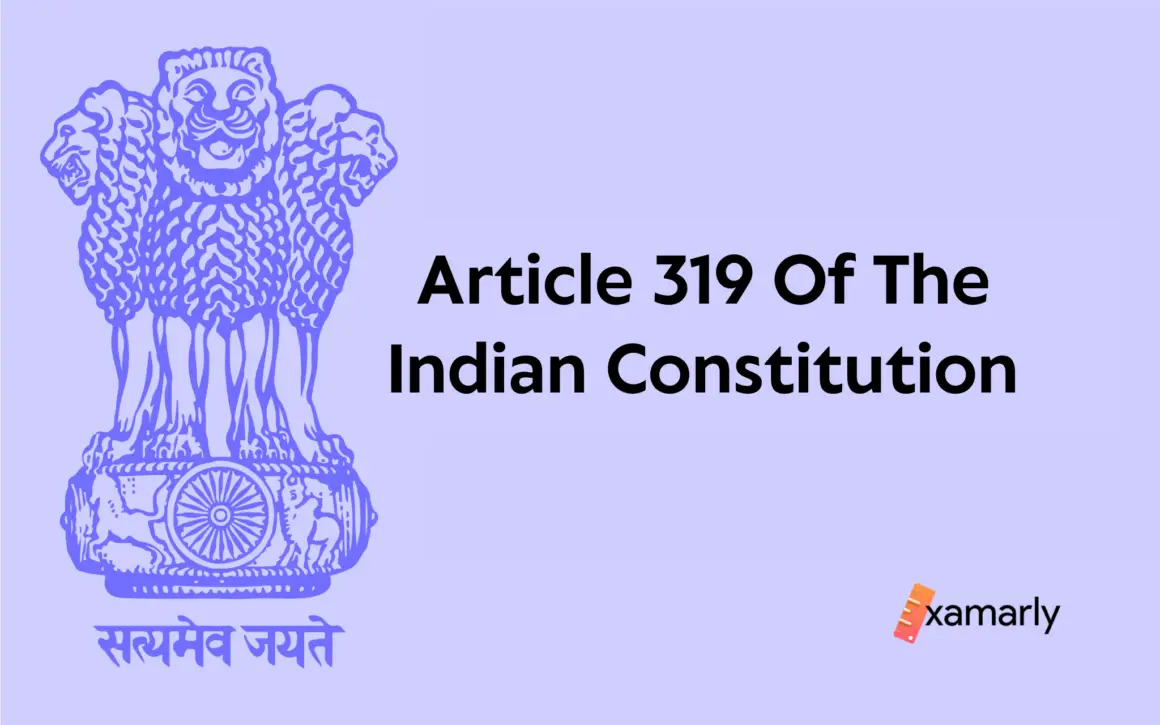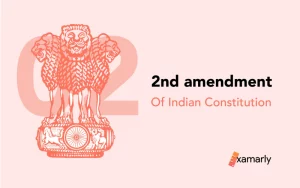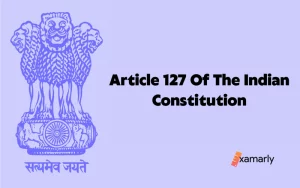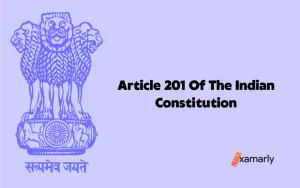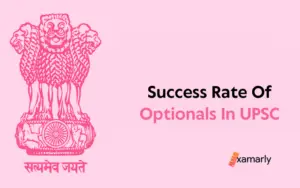The members of the Union and State Public Service Commissions of India play an essential role in ensuring a well-ordered functioning of the country by conducting examinations to recruit candidates for civil and service posts as well as advising the Government on matters related to appointments, promotions, disciplinary action, etc. However, along with the functions and services of the members of the Public Service Commissions, the Constitution has also defined their limitations during and after their tenure.
Article 319 of the Indian Constitution validates the motive to keep the members of the Public Service Commissions away from any political biases and significantly lays out the rules and regulations needed to be taken care of by the members of the Public Service Commissions.
In this blog, we will learn about the prohibitions that are put into effect with respect to the holding of offices by the members after their term is over.
- Background of Article 319 Of The Indian Constitution
- Article 319 Of The Indian Constitution
- Conclusion
- FAQs Related To Article 319 Of The Indian Constitution
- Which part of the Indian Constitution does Article 319 belong to?
- Which Articles of the Indian Constitution are included in Part XIV called "Services Under The Union And The States"?
- When was Article 319 of the Indian Constitution adopted?
- How many Parts and Schedules is the Constitution of India divided into?
- What is the purpose of Article 319 of the Indian Constitution?
- Which offices are prohibited for commission members to hold after ceasing to be such members according to Article 319 of the Indian Constitution?
- How long is the prohibition period for commission members after they cease to be such members?
- What happens if a commission member violates the prohibition outlined in Article 319 of the Indian Constitution?
- Can the prohibition outlined in Article 319 be waived in certain circumstances?
- Does Article 319 of the Indian Constitution apply to all types of commissions or only specific ones?
Background of Article 319 Of The Indian Constitution
What was the purpose behind introducing Article 319 Of The Indian Constitution? Let’s learn about it from a short background study.
- Draft Article 285C, which is now called Article 319 of the Constitution of India 1950, was introduced by the Drafting Committee Chairman on 22 August 1949 to ensure that the members of the Public Service Commission are independent from all sorts of political and professional biases.
- The Draft Article enforced prohibitions on the chairman and members of the Union and State Public Service Commissions regarding holding any positions of employment under the Union and State governments after completing their service as a member of the Public Service Commission.
- A Member proposed an amendment to replace the word ‘employment’ in Draft Article 285C with the term ‘office of profit’ in order to restrict appointments to positions with monetary benefits that may not be categorized as employment.
- Another member supported this on the ground that such members should be utilized without any unsuitable restrictions because of their skills and experience.
- The Drafting Committee Chairman responded to the proposals by stating that the purpose of the Draft Article is to ensure that members of the Public Service Commission are kept away from the influence of the executive and they should not be enticed with an honorary position.
- A Member also suggested that the total period of employment of a member in different public service commissions should not exceed 12 years so they don’t receive any preferential treatment from the State and get reappointed in any other Public service Commission.
- The above amendments were withdrawn by the members and Draft Article 285C was adopted by the Assembly on the same day, that is, 22nd August 1949.
Article 319 Of The Indian Constitution
The Clause – As it is & Explained
On ceasing to hold office—
(a) the Chairman of the Union Public Service Commission shall be ineligible for further employment either under the Government of India or under the Government of a State;
(b) the Chairman of a State Public Service Commission shall be eligible for appointment as the Chairman or any other member of the Union Public Service Commission or as the Chairman of any other State Public Service Commission, but not for any other employment either under the Government of India or under the Government of a State;
(c) a member other than the Chairman of the Union Public Service Commission shall be eligible for appointment as the Chairman of the Union Public Service Commission or as the Chairman of a State Public Service Commission, but not for any other employment either under the Government of India or under the Government of a State;
(d) a member other than the Chairman of a State Public Service Commission shall be eligible for appointment as the Chairman or any other member of the Union Public Service Commission or as the Chairman of that or any other State Public Service Commission, but not for any other employment either under the Government of India or under the Government of a State.
Article 319 of the Indian Constitution, in its clause, discusses the rules for eligibility for employment after ceasing to hold office for certain positions within the public service commission in India. Specifically, it is addressing the Chairman of the Union Public Service Commission (UPSC) and the Chairman and members of State Public Service Commissions (SPSC).
(a) states that upon ceasing to hold office, the Chairman of the UPSC is ineligible for further employment under both the Government of India and the Government of a State. This means that they cannot hold any other government position or employment after their tenure as Chairman of the UPSC ends.
(b) states that upon ceasing to hold office, the Chairman of a State Public Service Commission is eligible for appointment as the Chairman or any other member of the UPSC or as the Chairman of any other State Public Service Commission, but not for any other employment either under the Government of India or under the Government of a State. This means that after their tenure as Chairman of a State Public Service Commission ends, they can take on the role of Chairman or member of the UPSC or another State Public Service Commission but cannot take on any other government position or employment.
(c) states that upon ceasing to hold office, a member other than the Chairman of the UPSC shall be eligible for appointment as the Chairman of the UPSC or as the Chairman of a State Public Service Commission, but not for any other employment either under the Government of India or under the Government of a State. This means that after their tenure as a member of the UPSC ends, they can take on the role of Chairman of the UPSC or Chairman of a State Public Service Commission but cannot take on any other government position or employment.
(d) states that upon ceasing to hold office, a member other than the Chairman of a State Public Service Commission shall be eligible for appointment as the Chairman or any other member of the UPSC or as the Chairman of that or any other State Public Service Commission, but not for any other employment either under the Government of India or under the Government of a State. This means that after their tenure as a member of a State Public Service Commission ends, they can take on the role of Chairman or member of the UPSC or Chairman of another State Public Service Commission but cannot take on any other government position or employment.
Overall, this clause is outlining the limited options for employment after ceasing to hold office for certain positions within the public service commission in India, with an emphasis on ensuring that individuals do not hold multiple government positions or employment simultaneously.
Conclusion
In conclusion, Article 319 of the Indian Constitution lays out the rules and regulations regarding the prohibition of holding certain offices by members of a commission once they cease to be members. This provision serves to ensure the integrity and independence of commissions and prevent conflicts of interest.
It is important for individuals who are or have served as members of a commission to be aware of the restrictions imposed by Article 319 and abide by them in order to maintain the credibility and trust of the commission in the eyes of the public.
You Might Also Like To Read:
- Article 314 Of The Indian Constitution
- Article 315 Of The Indian Constitution
- Article 316 Of The Indian Constitution
- Article 317 Of The Indian Constitution
- Article 318 Of The Indian Constitution
FAQs Related To Article 319 Of The Indian Constitution
Which part of the Indian Constitution does Article 319 belong to?
Article 319 of the Indian Constitution belongs to Chapter II (Public Service Commissions) of Part XIV which is called Services Under The Union And The States.
Which Articles of the Indian Constitution are included in Part XIV called “Services Under The Union And The States”?
Part XIV of the Indian Constitution deals with the Services and various aspects of the Public Service Commissions of the States and the Union and includes Articles 308 to 323.
When was Article 319 of the Indian Constitution adopted?
Draft Article 285C (Article 319 of the Constitution of India 1950) was adopted on the 22nd August of 1949.
How many Parts and Schedules is the Constitution of India divided into?
The Constitution of India is divided into 25 Parts and 12 Schedules. However, at the time of its commencement, it had 22 Parts and 8 Schedules.
What is the purpose of Article 319 of the Indian Constitution?
The purpose of Article 319 of the Indian Constitution is to prohibit members of a commission from holding certain offices once they cease to be members in order to ensure the integrity and independence of the commission and prevent conflicts of interest.
Which offices are prohibited for commission members to hold after ceasing to be such members according to Article 319 of the Indian Constitution?
The exact offices that are prohibited for commission members to hold after ceasing to be such members are not specified in the constitution, but it is up to the parliament to define by law.
How long is the prohibition period for commission members after they cease to be such members?
The prohibition period for commission members after they cease to be such members is not specified in the constitution and is up to the parliament to define by law.
What happens if a commission member violates the prohibition outlined in Article 319 of the Indian Constitution?
If a commission member violates the prohibition outlined in Article 319 of the Indian Constitution, the parliament may take action to remove them from the office they are holding in violation of the prohibition.
Can the prohibition outlined in Article 319 be waived in certain circumstances?
The prohibition outlined in Article 319 can be waived by parliament with the passing of a law.
Does Article 319 of the Indian Constitution apply to all types of commissions or only specific ones?
Article 319 of the Indian Constitution applies to all types of commissions established by the parliament under the Indian constitution.


